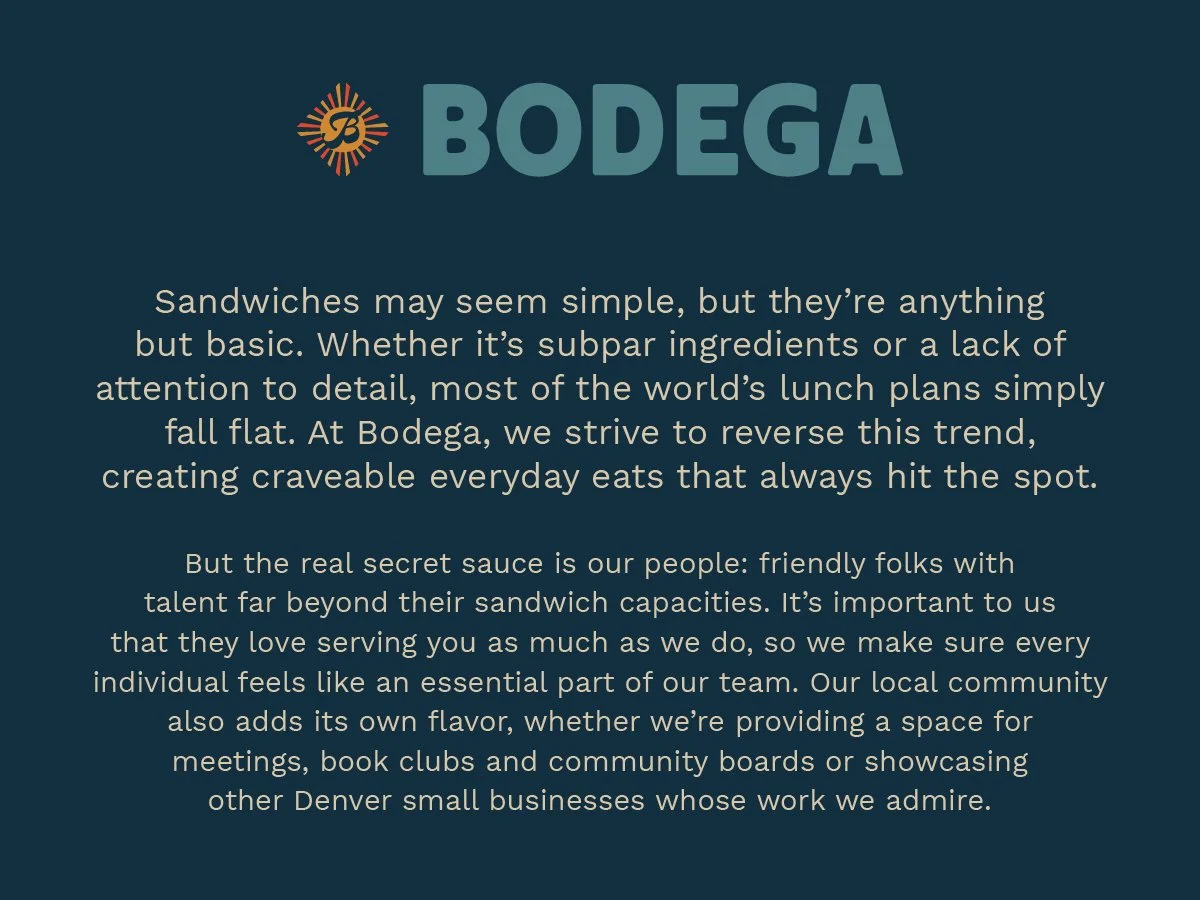Words Matter: 4 Reasons Restaurants Should Invest in Copywriting
After more than a decade of working closely with chefs and hospitality professionals, we understand that an ethos of “letting the work speak for itself” can feel natural—even logical—for restaurants and other F&B businesses. In turn, on some restaurant websites, you may notice an obvious lack of copywriting—leading guests to infer what the restaurant is like from photography and sample menus alone.
Yet there are a few good reasons why chefs and restaurateurs should take the time to crystallize their mission, intention or values in words:
If you don’t “own” your story, it’s left open to interpretation. What feels clear to you, as a chef / owner / general manager, can easily be misinterpreted by visitors to your restaurant. This issue is particularly fraught with members of the media, who may not take the time to reach out for direct quotes or perform fact-checks if they’re on tight deadlines.
A picture isn’t actually worth 1,000 words. Even the most eye-catching photography doesn’t tell your whole story. The food images on restaurant websites are often from seasons or years past, and beautiful plating doesn’t tell diners anything about your sourcing philosophy, technical expertise or how well you treat members of your team. Not to mention that regularly updating your photo library is more expensive than paying for high-quality, evergreen copywriting.
Diners are hungry for storytelling. There’s a reason that shows like Chef’s Table are popular. Diners go to restaurants for experiences, not just food—and learning about the people behind the restaurant increases their engagement with and investment in that experience. Sharing your story allows them to get excited before they arrive, and it also helps guests become more persuasive brand ambassadors when recommending your business to friends and family.
It’s easier to charge more when people know what they’re paying for. The most sought-after places to eat and work typically make a considerable investment in both their teams and their farm / producer relationships. When you tell your story persuasively and convey the level of care you bring to every aspect of your business, it’s easier to charge higher prices and implement “service included” policies—and to avoid uneducated customer complaints about the value of a meal!
We recently helped a NYC chef—with 15 years of experience in some of the city’s top kitchens—to launch her first independent restaurant. As a female chef of Filipino-American origin who was raised in the South, her layered personal and professional identity was an important part of her inspiration, and she was right to be concerned that journalists and guests might not understand these varied influences. By crafting a cohesive brand story that clearly conveyed her vision for the restaurant, we helped ensure that her business would not be misinterpreted or solely defined by her family heritage.
Back in Denver, we helped another entrepreneurial chef launch a craveworthy sandwich shop with a funky small business identity. Yet creating a safe, empowering work environment and an inviting neighborhood vibe for customers was equally important to the founder. In turn, we intentionally included clear messaging about the shop’s deeper mission while still maintaining a fun-loving brand personality.
If you’re a business owner who has struggled to clearly convey your vision or want to ensure a successful launch of a new business concept, we’d love to chat.





